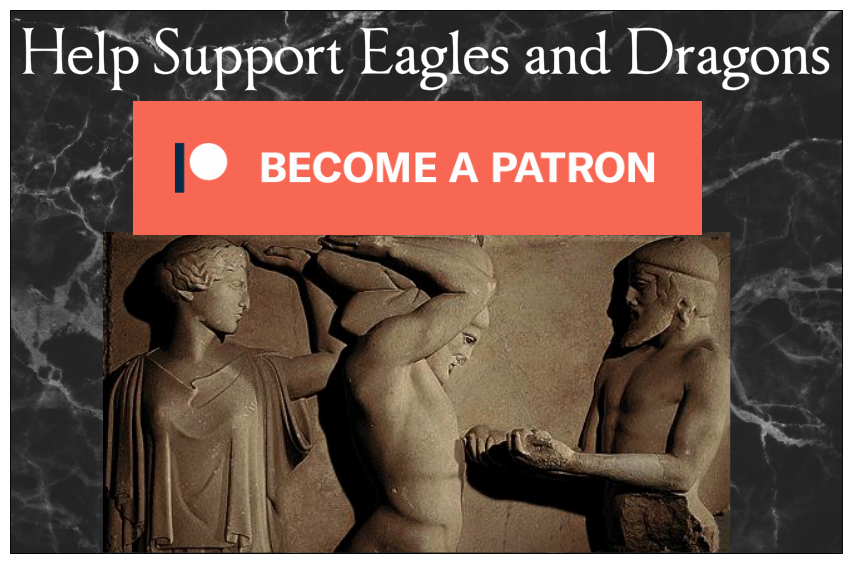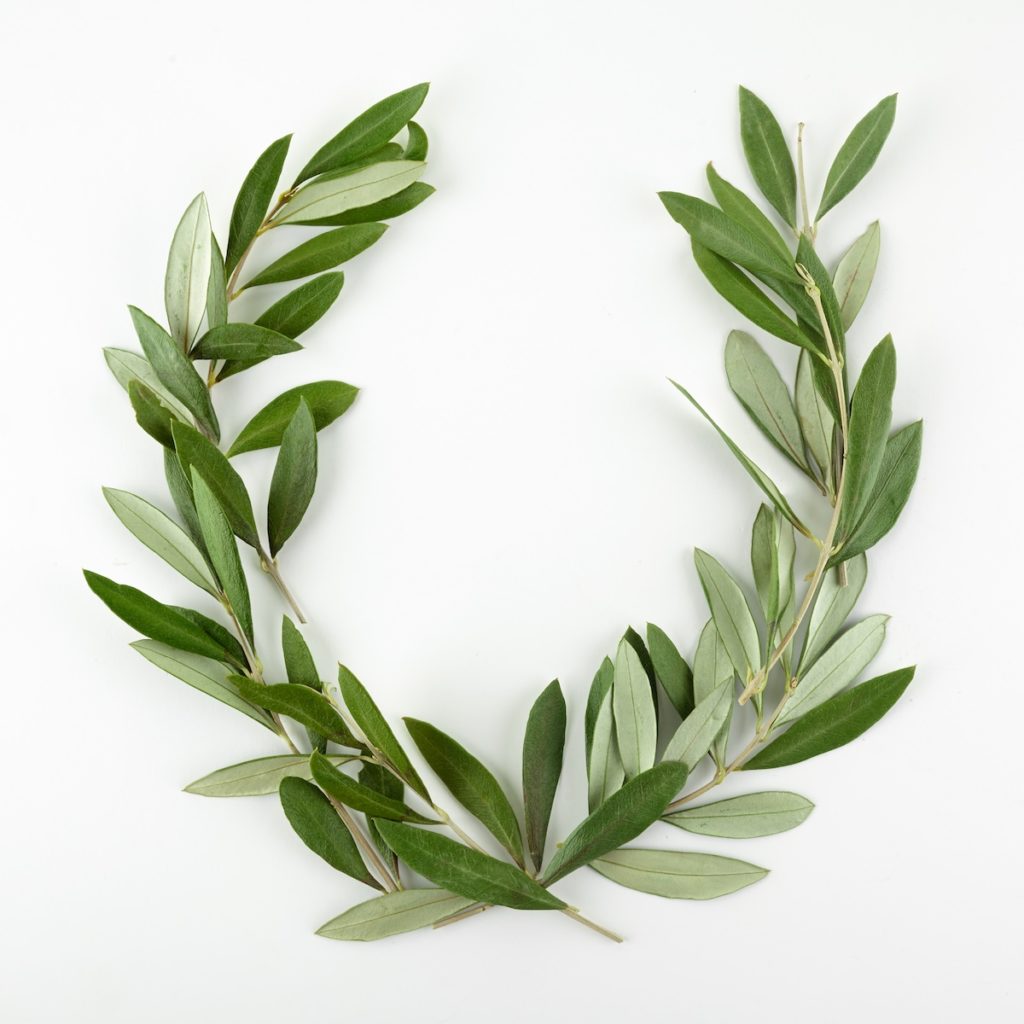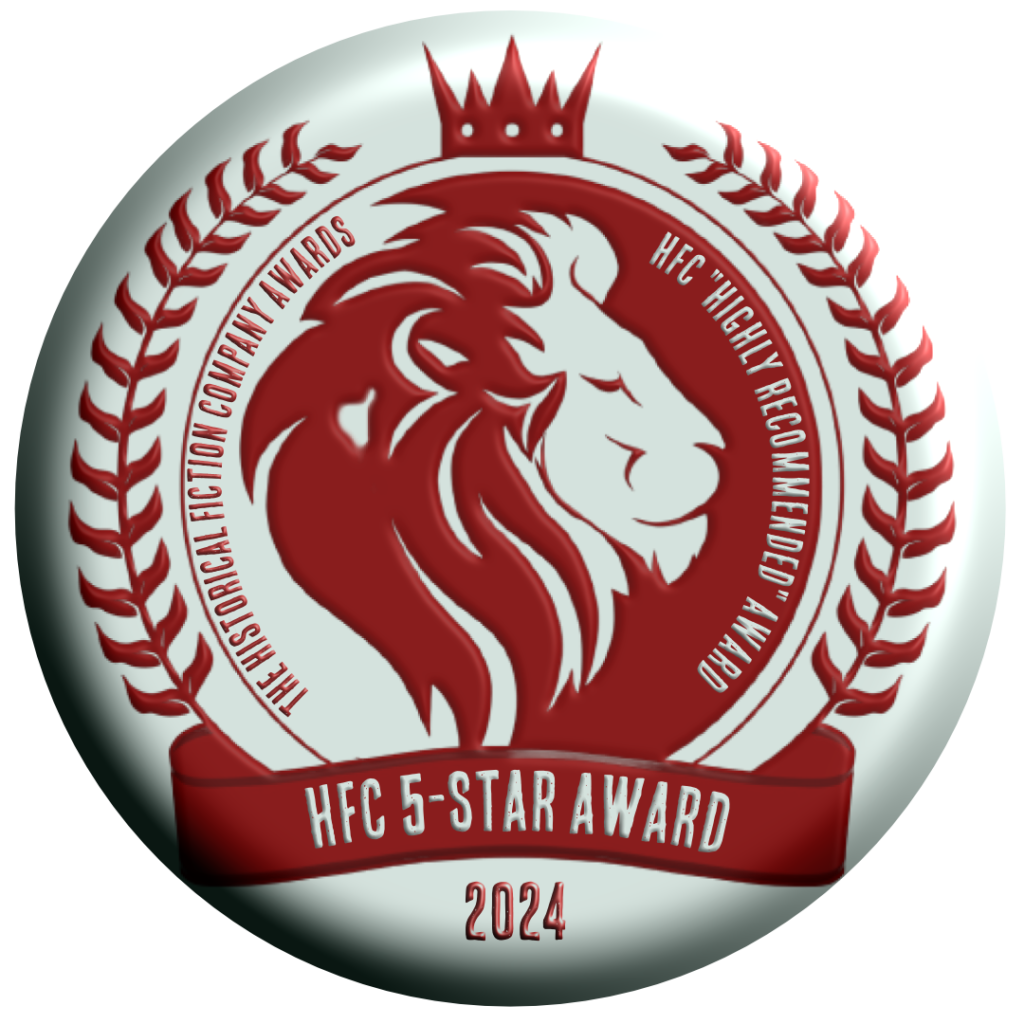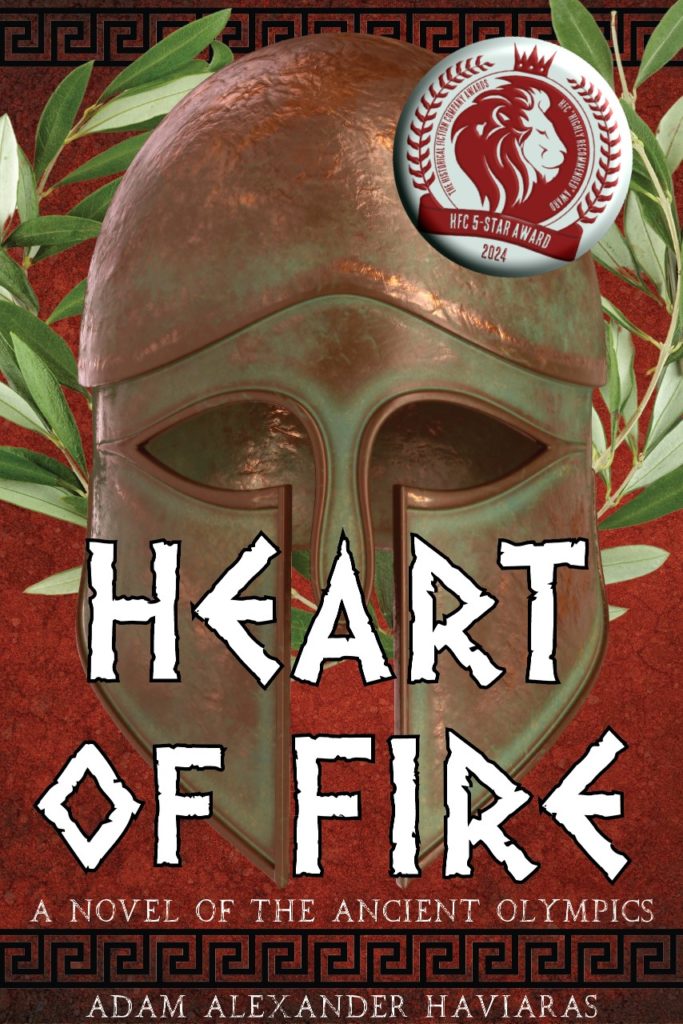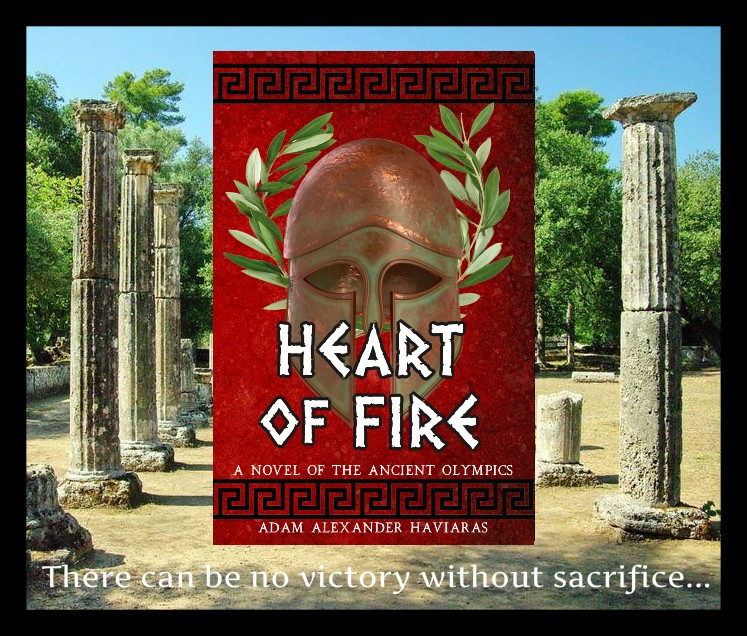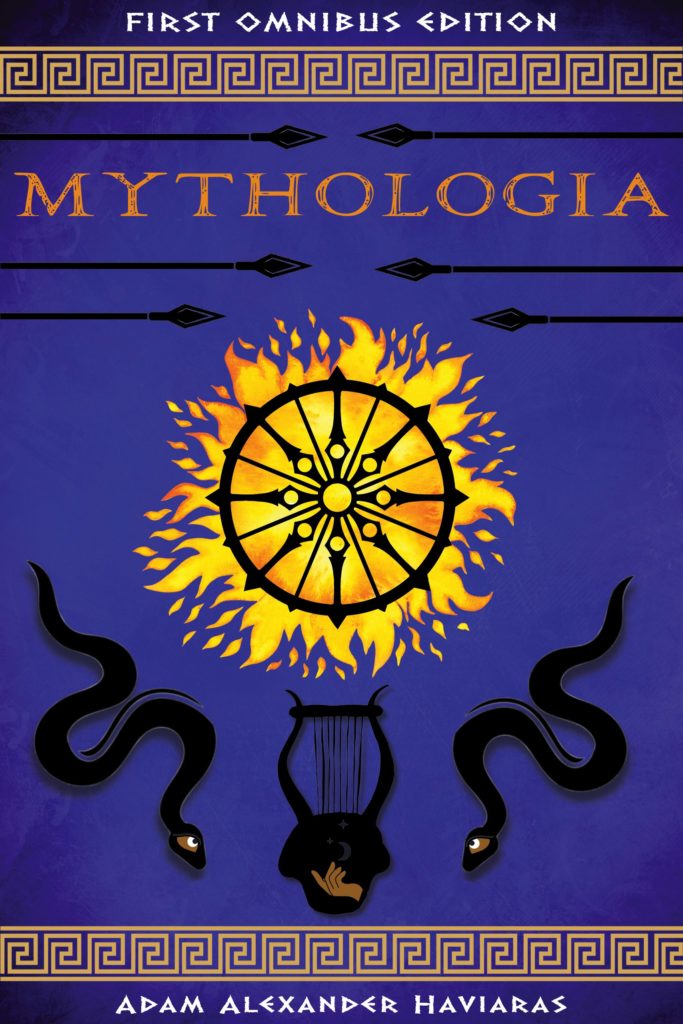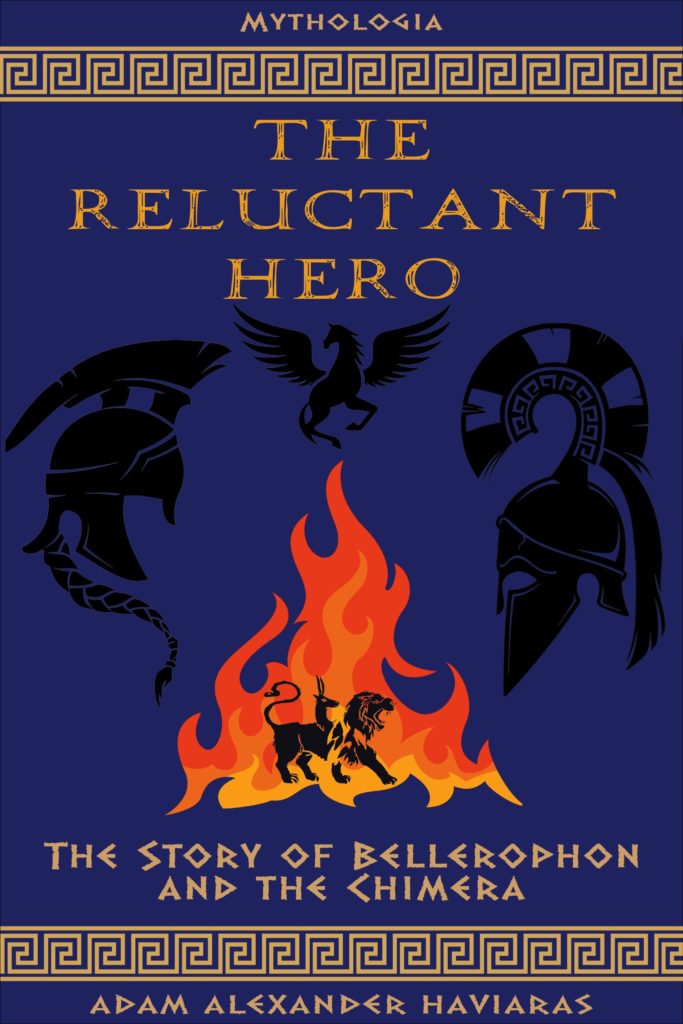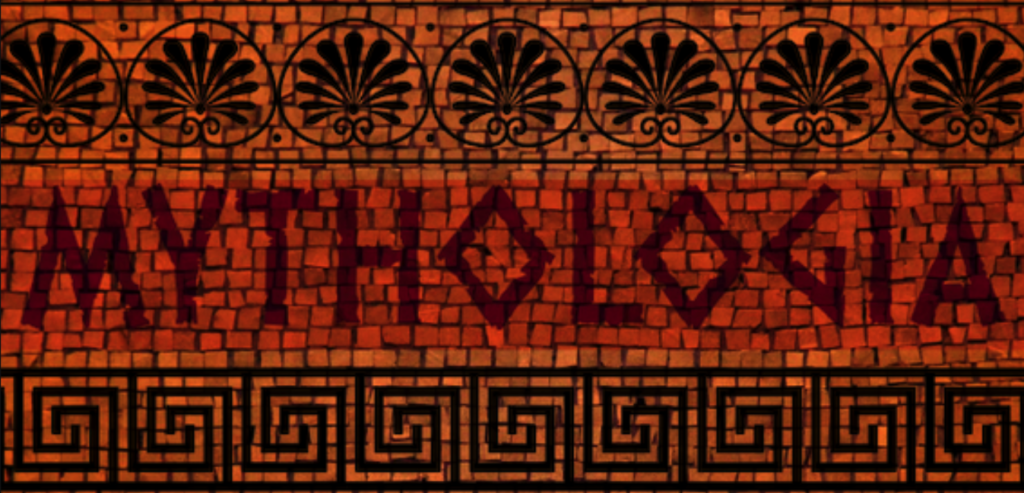
Then he [Pelops] said unto him: ‘Lo now, O Poseidon, if the kind gifts of the Cyprian goddess are anywise pleasant in thine eyes, restrain Oinomaus’ bronze spear, and send me unto Elis upon a chariot exceeding swift, and give the victory to my hands. Thirteen lovers already hath Oinomaus slain, and still delayeth to give his daughter in marriage. Now a great peril does not take hold of a coward: and forasmuch as men must die, wherefore should one sit vainly in the dark through a dull and nameless age, and without lot in noble deeds? Not so, but I will dare this strife…
(Pindar, Olympian Ode 1)
Greetings lovers of ancient history and mythology!
This week on the blog, we’re going to be taking a brief look at one of the most important heroes of Greek myth, but one who is often overlooked in popular culture today.
We are going to be looking at the myth of Pelops and Hippodameia and the events that led to the naming of the Peloponnesian peninsula after this hero.
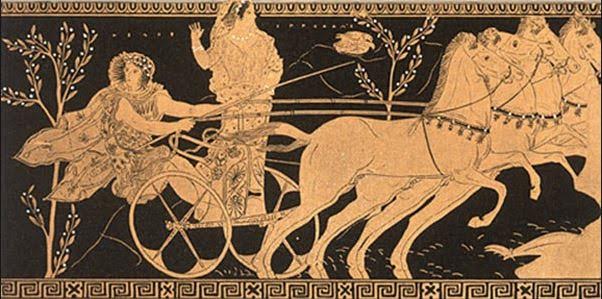
Pelops and Hippodameia racing
Though the myth of Pelops may not be well-known to the average person today, it was an important part of the mythological and religious canon in the world of ancient Greece and Rome. Several ancient writers wrote about it, including Homer, Pindar, Apollonius of Rhodes, Apollodoros, Diodorus Siculus, Pausanias and Pliny the Elder. Even Sophocles and Euripides wrote plays on the subject.
One of the foundation myths of the Olympic Games relates to Pelops and involves his famous chariot race against Oinomaus, the king of Elis.
On my first visit to ancient Olympia many years ago, I discovered Pelops’ story for the first time, having been amazed that it was so important that one of the statue groups on the pediment of the great temple of Zeus was dedicated to the myth.
Subsequently, I discovered that one of the hero shrines at ancient Olympia was dedicated to this eponymous hero.

East pediment of the temple of Zeus at Olympia showing Zeus between Oinomaus and Pelops, just before their race
But who was Pelops, and what did he do to deserve such adulation and remembrance?
These are the questions that I wanted to explore in Wheels of Fate, Book II in the Mythologia fantasy series.
SPOILER ALERT!
If you are planning on reading Wheels of Fate, you may wish to do so before going any further as this post discussed some of the key plot points in the myth that are explored in the book.
Here is a short synopsis of the myth…
The ancient kingdom of Elis, was ruled by Oinomaus who was the son of Ares and, apparently, quite brutal. He had a daughter by the name of Hippodameia, and every suitor who came for his daughter’s hand in marriage had to try and beat him in a chariot race across what became known as the Peloponnese, or, the ‘Isle of Pelops’.
Eighteen suitors had raced Oinomaus and been killed by him before Pelops laid down his challenge.
According to the legend, Pelops, a young prince from Lydia, was the son of Tantalus, the arrogant king who was punished by the Gods for his grievous sin and sent to Tartarus. After being greatly abused by his father (that’s an understatement!) Pelops was was taken in by Poseidon himself who taught him about horses. Eventually, Poseidon gave him a team of swift-footed horses so that he could race against Oinomaus.
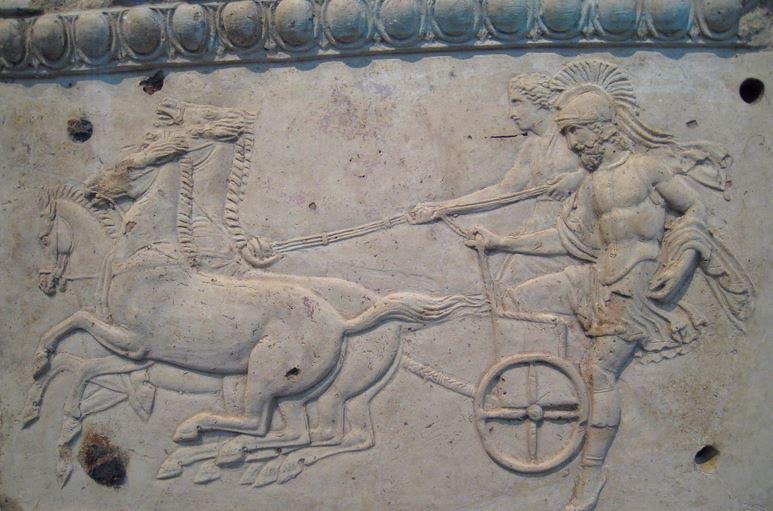
In order to ensure that Oinomaus did not win, Hippodameia also convinced her father’s man, Myrtilus, to sabotage the chariot so that Oinomaus would crash.
After Pelops’ victory, it was said that he began the Olympic Games in thanks to Zeus for his win. Another theory is that the Olympics were begun by Pelops as funeral games for the deceased Oinomaus who died in the race, or for Myrtilus, whom Pelops killed.
Whatever the ‘truth’ about these Olympic beginnings, one thing is certain – Chariot racing and horses had a deep connection to the Olympic Games.
This is a great simplification of the story. The book, Wheels of Fate, goes into much greater detail in exploring the myth. However, this particular foundation myth points to the Games as an event to commemorate Pelops’ victory.
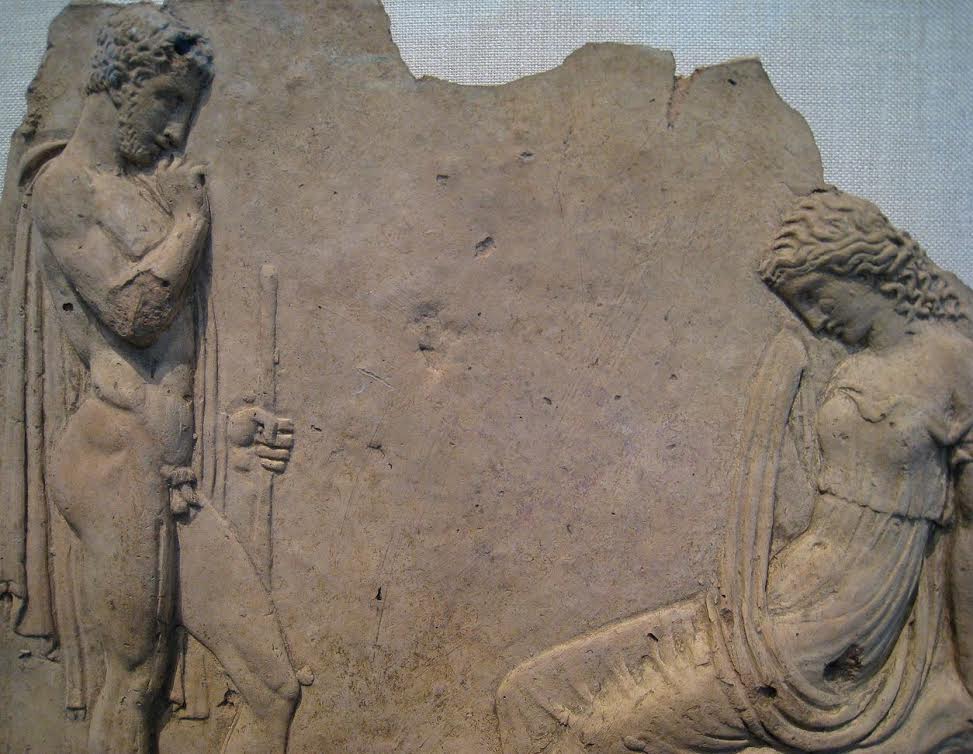
Pelops and Hippodameia
As far as we know, the very first event of the Olympic Games was the stade race sprint, and boxing became a part of the Olympic roster in the fourteenth Olympiad.
So when did chariot racing become a part of the Games?
It is generally agreed that chariot racing first made an appearance in the ancient Olympics during the twenty-fifth Olympiad in the year 680 B.C.
In tandem with the Olympic Games, said to be established by Pelops in this instance, Hippodameia was said to have established the Games of Hera, the Heraia, in thanks to the goddess for granting the victory as well. You can read more about the Heraia HERE.
The chariot race was the marquee event at the Olympic Games, and central to the story of Wheels of Fate, as well as our historical fantasy epic Heart of Fire: A Novel of the Ancient Olympics.
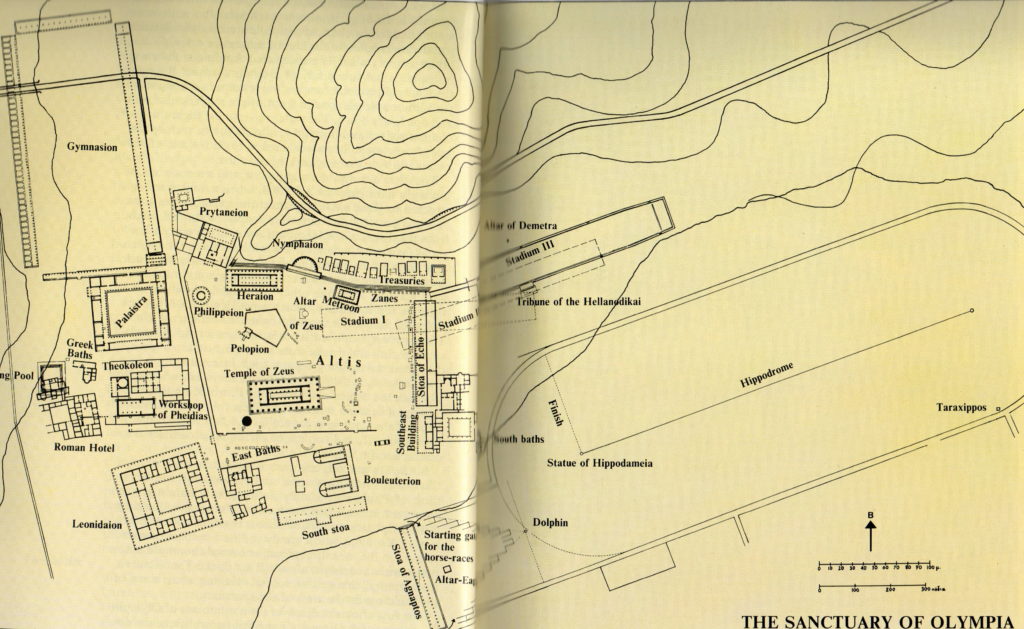
Olympia map showing hippodrome at bottom right.
There was much testament to this particular foundation myth around the Altis of Olympia as well, the sacred precinct at the heart of the sanctuary. As mentioned, one of the pediments from the temple of Zeus shows Oinomaus and Pelops with their chariots, on either side of Zeus, getting ready to race.
Also, in the hippodrome, the chariot racing track of Olympia, a statue of Hippodameia overlooked the track, and one of the turns called the Taraxippos, was said to be haunted by the angry ghost of Oinomaus who would spook horses as they passed. Also, one of the posts in the turns was said to be made from a beam from Oinomaus’ burnt house.
In the middle of the Altis, there was also the Pelopion, the burial mound of Pelops which became a shrine to the hero who would become the father of Atreus, and grandfather of Agamemnon and Menelaus, those well-known kings of Mycenae and Sparta who sailed to war at Troy.
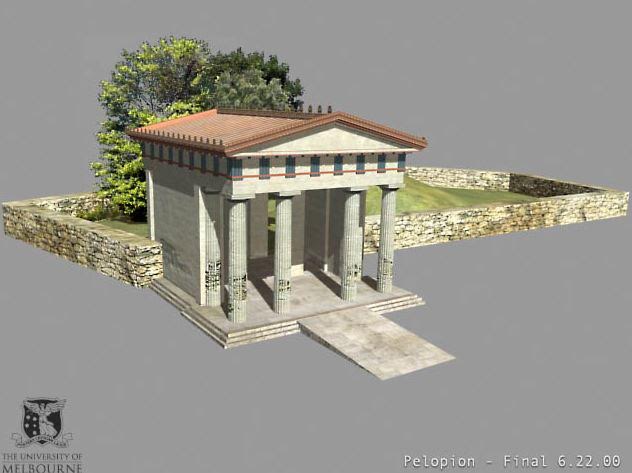
Pelopion (digital model created by University of Melbourne)
There is no denying the importance of Pelops among the ranks of ancient Greek heroes, and so it was a joy to explore his life in Wheels of Fate, to explore the dark corners of his life beyond what the sources tell us.
He was a grandson of immortals, the son of a king, and the father and grandfather of some of the most powerful kings of the Greek heroic age.
And his name lives on in the land itself, the ‘Peloponnese’ or, the ‘Isle of Pelops’.
If you want to explore this myth more deeply, you can check out our epic retelling of this myth in Book II of the Mythologia series, Wheels of Fate: The Story of Pelops and Hippodameia.
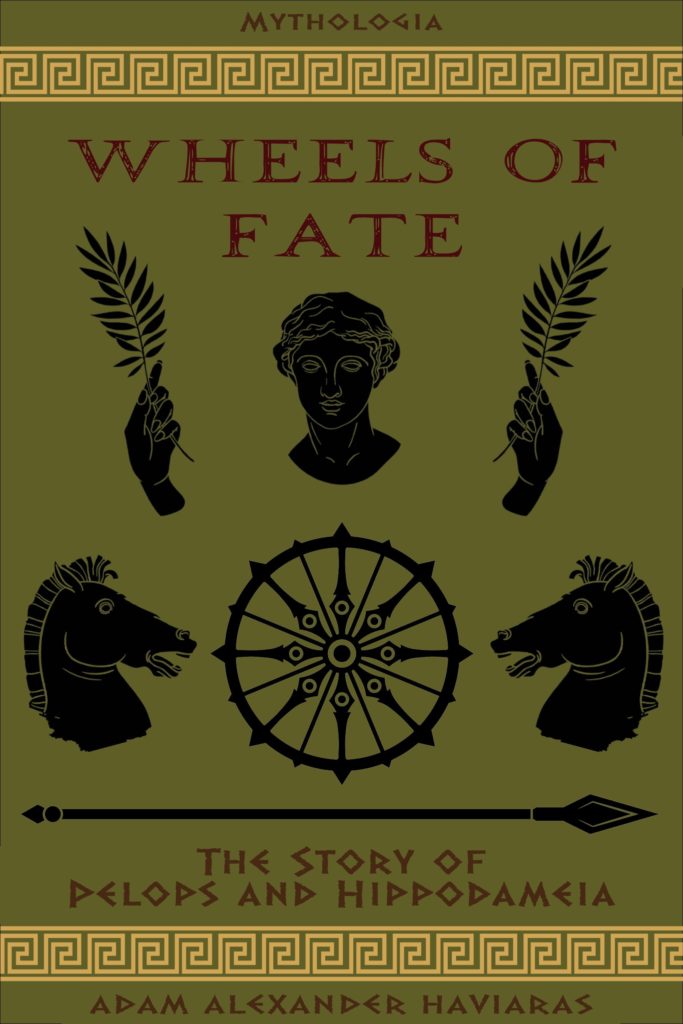
If you are interested in learning more about the ancient Olympic Games, you can check out The World of Heart of Fire blog series in which we look at all of the foundation myths of the ancient Olympics (yes, there are more than one!), the original athletic events, the archeology of ancient Olympia and more. You can also join me on a video tour of the archaeological site! You can read that series of blog posts for free by CLICKING HERE.
Lastly, if you haven’t checked out any of the titles in the Mythologia series, you can get the first three in the Mythologia: First Omnibus Edition HERE or directly from Eagles and Dragons Publishing.
Thank you for reading.
